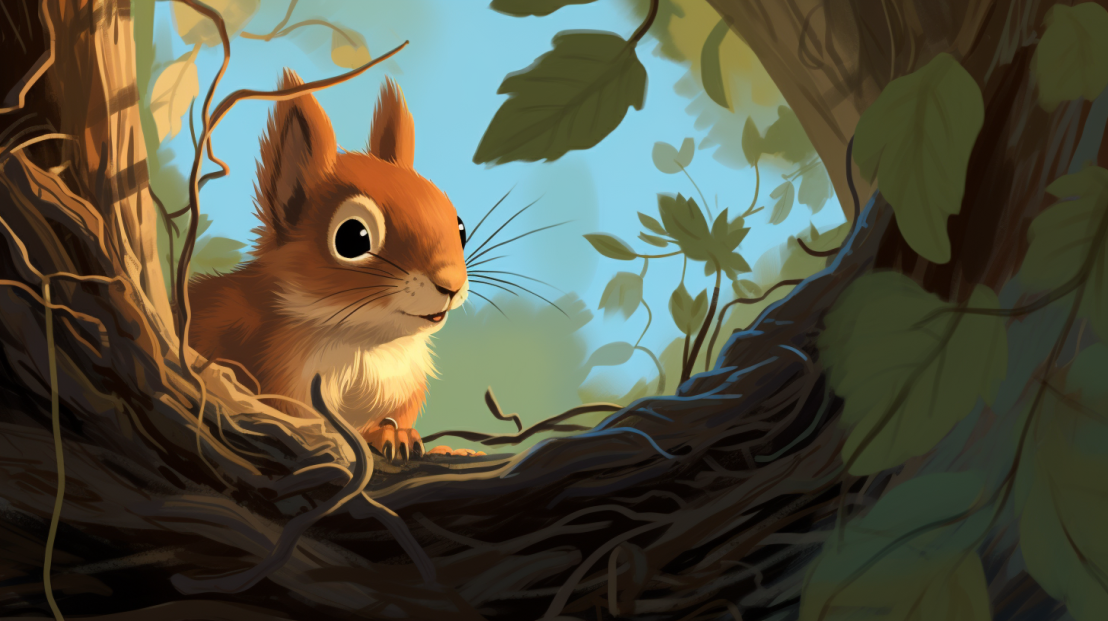Understanding Squirrels and Their Diet
Before we delve into the specifics of whether squirrels eat bird eggs, it is essential to understand their dietary habits. Squirrels are primarily herbivores, with a varied diet that includes nuts, seeds, fruits, and fungi. They are also known to munch on flower buds, young shoots, and even bark occasionally.
Squirrels rely on their sharp incisor teeth to crack open nuts and seeds, while their strong jaws allow them to extract the nutritious contents. They have a remarkable adaptation that enables them to consume a wide range of plant material, making them resourceful foragers in various habitats.
Typical Diet of Squirrels
| Food Sources | Examples |
|---|---|
| Nuts | Acorns, walnuts, hazelnuts |
| Seeds | Sunflower seeds, pumpkin seeds |
| Fruits | Apples, berries, grapes |
| Fungi | Mushrooms, truffles |
| Flower Buds and Shoots | Maple buds, tulip shoots |
| Bark | Tree bark, twigs |
The diverse diet of squirrels ensures that they can adapt to different seasons and environments, as various food sources become available throughout the year. However, the question remains: do squirrels eat bird eggs?
The Relationship Between Squirrels and Bird Eggs
Contrary to popular belief, squirrels do not actively seek out bird eggs as a significant part of their diet. While squirrels are known to come across bird nests during their foraging expeditions, their main motivation is not to devour the eggs within. Squirrels are more focused on gathering nuts, seeds, and fruits, which are more plentiful and readily accessible.
Though squirrels may occasionally stumble upon a bird’s nest and consume the eggs, it is typically an incidental occurrence rather than a deliberate hunting behavior. The dietary preferences and food availability play key roles in shaping squirrels’ foraging habits.
Factors that Influence Squirrel Food Choices
Several factors influence the food choices of squirrels and help explain their limited interest in bird eggs:
- Availability: Squirrels have a vast array of food sources available to them, ranging from nuts and seeds to fruits and fungi. These food items are abundant and easily accessible in their habitats. Compared to the numerous alternative choices, bird eggs represent a relatively scarce and inaccessible food option for squirrels.
- Nutritional Profile: While bird eggs are rich in protein, fats, and various vitamins and minerals, squirrels can obtain a sufficient amount of nutrients from their more frequented food sources. Nuts, seeds, and fruits provide them with the energy and nutrients needed for their survival and reproductive needs.
- Energy Expenditure: Successfully acquiring bird eggs requires a significant amount of energy and exposes squirrels to potential territorial disputes with birds. Squirrels weigh the potential nutritional value of bird eggs against the risks involved in obtaining them. Consequently, they focus on food items that offer a higher return on investment in terms of energy expended.
Understanding these factors helps debunk the popular myth that squirrels are avid consumers of bird eggs. While squirrels may occasionally consume the eggs they come across, it is simply a byproduct of their foraging activities rather than a deliberate search for this specific food source.
Nutritional Value of Bird Eggs for Squirrels
Though squirrels do not actively seek out bird eggs for sustenance, there might be instances when they inadvertently consume them. In such cases, bird eggs provide a temporary boost of essential nutrients, including protein and fats, which are crucial for the squirrels’ overall health and vitality.
While bird eggs may offer nutritional benefits, it is important to note that squirrels can generally meet their dietary requirements through their regular food sources. Their diversified diet ensures they receive a balance of macro and micronutrients necessary for their well-being.
Fun fact: Did you know that squirrels are known for their incredible memory? They possess spatial memory that helps them remember where they have buried their food caches, which is essential for their survival during the colder months.
Continue reading the second half of the blog post to discover more about squirrels’ behavior when it comes to bird eggs, their nesting habits, and strategies to mitigate nest predation by squirrels.
Nest Plundering: A Closer Look at Squirrels’ Nesting Behavior
Squirrels are notorious for their nest plundering behavior. However, their motivations behind this behavior differ from what one might expect. When squirrels come across bird nests, their primary interest lies in the nesting materials and shelter rather than the eggs themselves.
Squirrels are skilled architects and spend considerable effort building their nests, known as dreys. These cozy structures provide them with protection from predators and harsh weather conditions. When a squirrel encounters a bird’s nest, they might dismantle it to gather valuable resources for their own nest-building endeavors.
During their nest plundering activities, squirrels mainly focus on collecting twigs, leaves, and other materials that birds have used to construct their nests. By repurposing these materials, squirrels optimize their chances of survival and reproduction.
Mitigating Nest Predation By Squirrels
For bird enthusiasts concerned about potential nest predation by squirrels, there are several effective strategies to safeguard nests and minimize the impact on bird populations.
Strategic Placement
By positioning bird nests in locations that are difficult for squirrels to reach, we can significantly reduce the likelihood of nest plundering. Placing nests high up in tree branches or on rooftops, where squirrels have limited access, can help protect them from these agile climbers.
Squirrel Deterrents
Numerous squirrel deterrents are available that can be effective in preventing squirrels from reaching bird nests. These include:
- Physical Barriers: Installing squirrel-proof feeders or wiring around delicate nests can create a physical obstacle that blocks squirrels’ access. These barriers discourage squirrels from approaching the nests and significantly reduce the risk of nest predation.
- Scent Repellents: Some scent-based repellents, such as predator urine or certain plant extracts, can be employed to deter squirrels. These substances emit odors that are unpleasant to squirrels, making them less likely to venture near bird nests.
Natural Predators
Encouraging the presence of natural predators in the area can help deter squirrels from approaching bird nests. Birds of prey, such as hawks or owls, as well as non-aggressive snakes, are known to keep squirrel populations in check. Their presence creates an atmosphere of risk for squirrels, which can be a powerful deterrent.
By implementing these strategies, we can create an environment that minimizes nest predation by squirrels and allows bird populations to thrive.
As we have discovered, squirrels have a limited interest in bird eggs and do not actively seek them out as a significant part of their diet. By understanding the factors that influence their food choices and behavior, we can appreciate the complexities of their feeding habits and coexist harmoniously with our feathered friends.
It is important to remember that encounters between squirrels and bird eggs are relatively rare and should not be a cause for concern. Nature has a way of maintaining balance, and squirrels play a vital role in ecosystems as seed dispersers. Let us continue to marvel at the wonders of the natural world and cherish the diversity of wildlife that surrounds us.
“The squirrel that you kill in jest dies in earnest.” – Henry David Thoreau
Hey there, fellow nature enthusiasts! I’m Mark Gray, the passionate owner of OutdoorAnimals.com, a hub dedicated to uncovering the incredible world of outdoor animals. Whether you’re a hiker, a four-wheeler, or just someone who revels in the beauty of the great outdoors, you’re in the right place. I seek to understand all varieties of animals, from the great elk to the simple mouse, my goal is to write and share this knowledge with the public.

